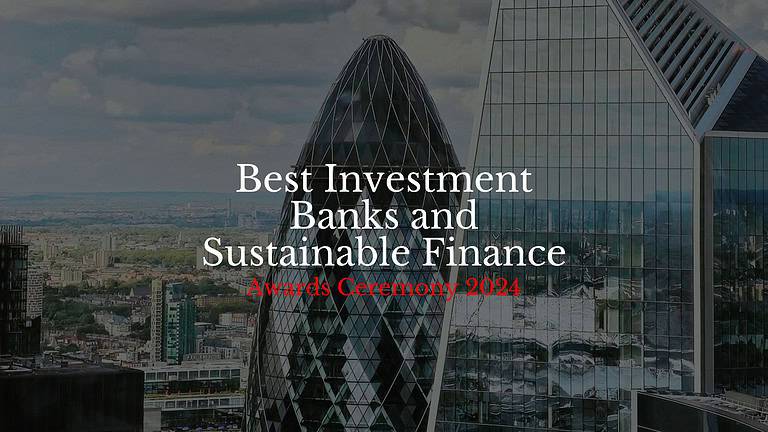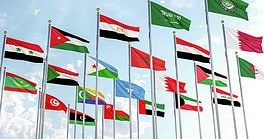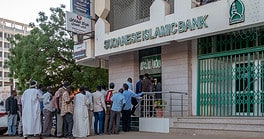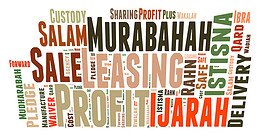For the second consecutive year, M&A activity felt the blow from tighter financial conditions and rising debt-financing costs. As a result, global deal-making volume was down 25% in 2023, according to Dealogic data. Among the regions that were hit hardest were the Middle East, which was down 43% year over year; Asia (excluding Japan), down 36% year over year; and Europe, down 37% year over year.
M&A activity was notably lower among venture capital and private equity firms, with estimated declines of 39% and 35%, respectively, as reported by Bain & Company. Technology saw the most significant decline among sectors, with banking revenue resulting from the industry’s M&As dropping roughly 30% from the year prior.
But despite the overall gloomy picture, there were plenty of bright spots, especially in the oil and gas sector. Recall ExxonMobil’s pending $60 billion acquisition of Pioneer Natural Resources and Oneok’s $18.8 billion purchase of Magellan Midstream Partners.
Pfizer’s $43 billion merger with biotech company Seagen was the largest healthcare-related transaction. —TM
Global | Goldman Sachs
Consistently topping the league tables, Goldman Sachs continued the trend in 2023 despite a volatile and challenging M&A landscape. The company retained its top ranking in global M&A volume and revenue with solid market shares of 29% and 10%, respectively, according to Dealogic. Global M&A activity is seeing a resurgence following a significant decline over the past two years, as uncertainty related to the heightened interest rate environment, geopolitical instability, and concerns over a possible economic recession depressed merger activity. The weakness in deal-making that began in 2022 extended through 2023, as global M&A volume fell 13% to $3.1 trillion. Revenue slid 25% to $27.8 billion, reflecting a sharp decline of 40% in the technology sector. While geopolitical tension persists, many economic fears have waned; and global central banks have shifted to a rate-cut bias as 2024 unfolds. This bodes well for Goldman Sachs to capture renewed deal activity. Better fundamentals combined with improved confidence among global CEOs may unlock a backlog of transactions to allow companies to make strategic acquisitions. —DS
Africa | Absa
According to LSEG (formerly Refinitiv), the value of M&A transactions in sub-Saharan Africa stood at $12 billion during the first six months of 2023. That’s a 51% decline and the lowest first-half total since 2020. The number of deals also plunged by 23% compared to the previous year, representing a 10-year low. Despite the slowdown in deal-making, Absa Bank demonstrated energy in corporate finance advisory and M&A. Riding on its commitment to build a reputation of supporting Africa’s growth sustainably by targeting more than $6 billion in sustainable lending by 2025, the bank continues to be active in deals, particularly in sectors like renewable energy, manufacturing, and information and computing technologies. Its key deals include acting as the sole adviser in a landmark transaction that saw South Africa-based technology group Alviva become a privately held and majority Black-owned company. This entailed a cash offer of 2.5 billion South African rands (about $132 million). —JN
Asia-Pacific | CCB International
CCB International has built a reputation as the leading provider of M&A advisory services regarding the volume of deals and the total value. China Construction Bank’s (CCB’s) wholly owned Hong Kong subsidiary company offers various M&A advisory services covering divestments, acquisitions, restructuring, capital market takeovers and privatizations, and leveraged buyouts. Since 2020, CCB International has expanded its environmental, social, and governance (ESG) bond issuances with green, social, and sustainability-linked bonds, as well as transition bonds: 16 ESG bonds were issued in 2023. Since 2014, CCB International has also ranked as one of the top 10 houses for initial public offerings (IPOs) in the Hong Kong global finance market, specializing in large deals involving Chinese enterprises, building on its credentials in the Hong Kong market, and benefiting from the influence in mainland China of its parent company, CCB. —LZ
Central & Eastern Europe | UniCredit
Despite the broad-based slowdown that cut merger activity in larger Europe by 37% from the previous year, Central and Eastern Europe’s (CEE’s) deal-making remained resilient in 2023. The better-than-expected numbers were driven by thriving action in Romania’s banking sector and substantial changes in the region’s telecom industry. Against this backdrop, UniCredit positioned its clients to take advantage of some of the year’s most important moves, such as the Emirates Telecommunications Group Company’s acquisition for up to €2.5 billion (about $2.7 billion) of PPF Telecom Group’s assets in Bulgaria, Hungary, Serbia, and Slovakia. As a result of its best-in-breed M&A advisory activity, the Italian giant garnished a reported excess of more than $10 billion in cash, which it used to boost its M&A adviser team by hiring as many as 20 bankers throughout the year and moving deeper into CEE with acquisitions of its own. In October, the Italian bank took over Alpha Bank Romania. —TM
Latin America | Banco BTG Pactual
Banco BTG Pactual is the leading Latin American bank in M&A, with regional operations in Brazil, Chile, Peru, Colombia, and Mexico. Its team extends to New York, and the bank looks to leverage advisory opportunities across its global emerging market franchise. BTG successfully cultivates long-term relationships with a large and diverse group of Brazilian and Latin American issuers and identifies large Latin American and international investors. A challenging operating environment in 2023 resulted in M&A revenue declining by 37%, according to Dealogic. However, BTG continues to build impressive market shares in the region, with $20 billion in deal volume across 65 transactions, for a 25% share in 2023. It is Brazil’s dominant investment bank, placed first in deal volume with $19 billion across 60 transactions, for a 39% market share. On the revenue side, the bank ranks fifth in M&A fees in Latin America and fourth in Brazil. —DS
Middle East | Standard Chartered
Standard Chartered (StanChart) operates a dominant global bank with a solid local franchise in the Middle East, a skilled team of bankers, and extensive tenure, to serve nine regional markets. Its investment banking operations consistently demonstrate its comprehensive M&A capabilities by securing high-profile strategic advisory mandates for regional governments and large multinational corporate clients in key industries. Supported by 120 industry specialists in five global locations, StanChart offers broad industry coverage of critical sectors of oil and gas, power utilities, infrastructure, technology, metals and mining, clean technology, and commercial real estate. Its scale is a competitive advantage, and its Middle East business can leverage an extensive global investment banking network to provide international reach with clients and investors. As economic uncertainty and global instability in 2023 depressed the environment for new transactions, overall M&A revenue fell 43% in the Middle East, according to Dealogic. However, the bank’s strong local and regional franchise, combined with support from the broader global team, is particularly valuable and positions the bank to capture new M&A mandates as the market recovers in 2024. —DS
North America | Morgan Stanley
The outlook for renewed M&A activity has improved following a sluggish environment in 2023, which was caused by recession fears and rising interest rates to combat inflation, and exacerbated by regulatory impediments from the US government’s antitrust stance. While these factors resulted in a 7% decline in North American M&A volume, Morgan Stanley’s volume of business rose slightly in 2023, according to Dealogic. However, the firm expects stronger momentum in 2024, as fundamentals have improved with moderating inflation, the resilient US economy, and recent strength in the equity markets. A prolonged period of elevated interest rates means financing is more expensive for M&A deals. Still, the Federal Reserve appears to be at the end of its tightening cycle, with a shift toward a more accommodative monetary policy. Additionally, Morgan Stanley believes that improved financial markets, healthy corporate balance sheets, and CEO confidence will catalyze a rebound in activity, particularly in the energy, healthcare, and technology sectors. Additional M&A traction could result from the return of financial sponsors as both buyers and sellers, corporate reorganizations involving spinoffs to streamline their business or raise capital, and economic challenges in regions of the globe spurring acquisitions in the US. —DS
Western Europe | J.P. Morgan
Despite equity offerings jumping, on improving inflation and expectations of a more dovish European Central Bank in 2023, companies remained reluctant to balloon their balance sheets through acquisitions. As a result, European M&A activity dropped by a hefty 37% in the year, with utilities and technology being the most affected industries. But in the face of the challenging scenario, our Best Bank in Western Europe, J.P. Morgan, saw an opportunity to overtake rival Goldman Sachs as the leading adviser in the region. With an impressive 164 deals in the region, worth $209 billion, and $594 million in proceeds, the New York-headquartered global behemoth closed the year with a 7.2% share of the European M&A market. Among J.P. Morgan’s most significant deals landed in the year were the historic takeover of Credit Suisse by UBS and the €22 billion takeover of Telecom Italia by private equity group KKR, in which the bank served as a primary adviser for both parties. —TM
| Best M&A Banks | |
|---|---|
| Global | Goldman Sachs |
| Africa | Absa |
| Asia-Pacific | CCB International |
| Central & Eastern Europe | UniCredit |
| Latin America | Banco BTG Pactual |
| Middle East | Standard Chartered |
| North America | Morgan Stanley |
| Western Europe | J.P. Morgan |
More from the 2024 Best Investment Bank Awards












